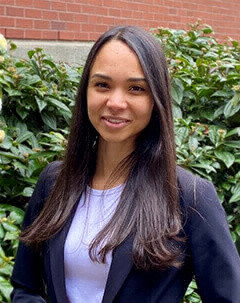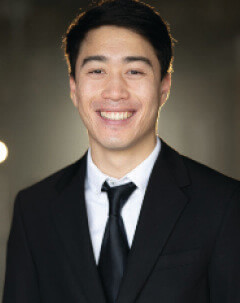Student & alumni profiles
The research of our PhD students and alumni cover a wide array of topics, reflecting the diversity of their scholarly pursuits. Some research themes include:
- social evaluations including trust, stigma, authenticity and legitimacy
- social movements and institutions
- stakeholder management and engagement
- reconciling forms of knowledge
- sustainability, regeneration and innovation
- culture and migration
Student profiles
Meet the PhD students currently at our school.
Credentials
Bachelor of Arts in Tourism Studies, Sao Judas Tadeu University; Master of Arts in Sociology, Memorial University of Newfoundland and Labrador
Contact
Biography
Before beginning her PhD, Bruna researched the social sustainability of rural communities in Newfoundland as part of her master’s studies and participated in a multidisciplinary project examining the role of social enterprises and community organizations in regeneration and resilience. These experiences sparked her interest in alternative forms of organizing, particularly those that amplify underrepresented voices within management scholarship. Bruna’s dissertation explores community organizations within the Brazilian Carnival, focusing on how marginalized and stigmatized groups organize to resist exclusion and foster social change. Bruna is a recipient of a SSHRC Doctoral Fellowship.
Research interests
- social evaluations, particularly (de)stigmatization
- community organizations
- community resilience
- marginalization
- social change
Cohort
2022
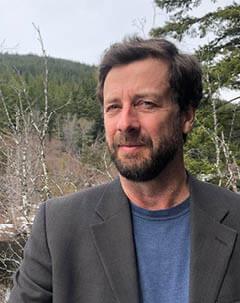
Credentials
Bachelor of Arts in Political Science and Philosophy, Queen’s University; Master of Arts in Political Science, University of Toronto; Master of Business Administration, Sustainable Innovation, University of Victoria
Contact
Biography
With a 20-year career in the public and private sectors, Lorin possesses a diverse skill set. He has been involved in the development and implementation of large-scale energy, environment and economic policy. He also has experience in government relations consulting in the private sector, and has owned and operated a successful small business.
Research interests
-
the impact of broad-based employee ownership on economic, environmental and social outcomes
-
deliberative democratic theory and practice in employee participation and governance
Cohort
2022
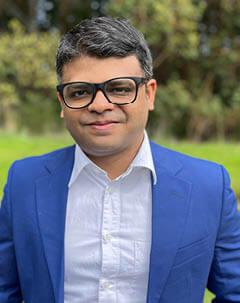
Credentials
Bachelor of Engineering in Computer Science, RV College of Engineering; Post Graduate Diploma in Management, Indian Institute of Management Indore
Contact
Biography
Before enrolling in the PhD program, Eraj spent three years in the Indian social sector, creating data solutions for multilateral organizations, governments and non-governmental organizations to enhance program planning and monitoring. He concluded this experience as a data lead at a prominent private philanthropy, following the start of his career in credit card data analytics at a multinational bank.
Research interests
- organizational social evaluations, in particular, authenticity and legitimacy
- social media and its effects on organizations and institutions
Cohort
2020
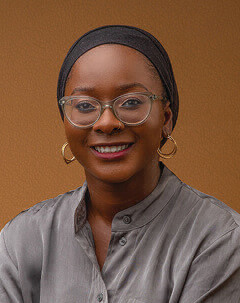
Credentials
Bachelor in Supply Chain Management, University of Houston; Bachelor in Public Relations, University of Houston; Master of Science in Management Science, University of Texas at Dallas; Master of Business Administration, University of Texas at Dallas
Contact
Biography
During her dual masters program, Aminat honed her research skills through a vendor management internship in the ecommerce sector, which equipped her with critical thinking, problem-solving and forecasting capabilities. Prior to this, she contributed to the healthcare industry as a value analysis intern in a hospital's supply chain department, dedicated to optimizing supply chains to support the hospital's mission.
Research interests
- stigmatized organizations and identities
- the evolution of culture at the boundaries of organizations
- the impact of cultural differences on factors such as organization survival and competitiveness
Cohort
2020
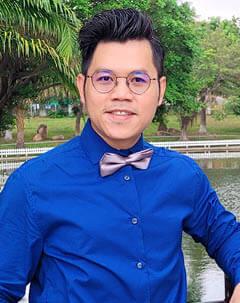
Credentials
Bachelor in Business Administration, Foreign Trade University; Master of Science in International Business, University of Turku
Contact
Biography
Before entering the PhD program, Mac Nguyen gained several years of experience in the private sector. During this time, he played different roles such as supervisor, assistant director, and most recently, entrepreneur and speaker in the areas of business development, external relations and multicultural communication. Mac’s research seeks to understand how organizations develop and stay relevant within their particular contexts while balancing conflicting demands and/or tensions.
Research interests
- corporate patriotism
- institutions and social-symbolic resources
- temporality
- innovation
- regenerative sustainability
- emerging market contexts
Cohort
2020
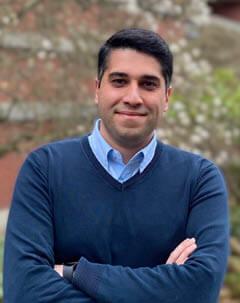
Credentials
Bachelors of Science in Industrial Engineering – Industrial Technology, Babol Noshirvani University of Technology; Master of Science in Technology Management – Technological Innovation, University of Tehran
Contact
Biography
Before entering the PhD program, Pedram worked as a researcher in a variety of industries and a consultant with private businesses. His master's thesis explored innovation ambidexterity and he co-authored two books on circular economy and corporate venturing. He gained additional experience by studying entrepreneurial activities in coastal communities in Canada.
Research interests
- entrepreneurial ecosystems
- business and community engagement
- community-driven innovation and social change
- social and community-based entrepreneurship
Cohort
2022
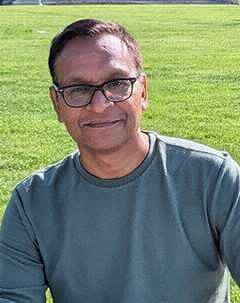
Credentials
Bachelor of Law and Bachelor of Commerce, M.L. Sukhadia University; Master of Business Administration, Pennsylvania State University
Contact
Biography
Before joining the PhD program, Amit was a social entrepreneur, leading 'Earthen Colors' in promoting sustainable fashion through traditional handwoven fabrics in India. His prior experience included roles in large corporations in the United States and India, encompassing business strategy, corporate finance, business development, pricing strategy, financial modeling and analytics.
Research interests
- social value judgments in organizations focusing on the social construction of authenticity and legitimacy
- scaling challenges faced by organizations, specifically the creative craft industry and specialty businesses
- role of social entrepreneurs as an agent of change in overcoming grand challenges
- intersection of entrepreneurship, sustainability and social wealth creation
- identifying opportunities for creating social value in business operations
- practical implications of academic research in addressing real-life business problems
Cohort
2022

Credentials
Bachelor in Science in Auditing, Nanjing Audit University; Master in Science in Banking and Finance, King’s College
Contact
Biography
Xin has a strong background in mathematics and physics, having won several first or second prizes in national and regional competitions. She is also an affiliate of the Association of Chartered Certified Accountants (ACCA). Prior to her academic pursuits, Xin gained practical experience as an intern at PricewaterhouseCoopers (PwC) in Shanghai, where she provided audit services to a diverse range of clients. Her paper has won the Best Student Paper award for the Administrative Sciences Association of Canada (ASAC).
Research interests
- strategic management
- soft performance metrics
Cohort
2020

Credentials
Bachelor of Science in Linguistics and Bachelor of Arts in Interdisciplinary Studies, Truman State University; Master of International Business, Saint Louis University
Contact
Biography
Lauren brings to the PhD program 10 years’ experience in the US healthcare market research industry, where she honed strong skills in qualitative analysis, especially working with dialogue data and social media data. She also managed a multicultural team as part of the Global Analytics Center of Excellence and she led the employee resource group dedicated to disability awareness. Lauren previously lived and worked in rural Japan for several years in the education sector.
Research interests
- business and community engagement
- global management and society
- regenerative sustainability
- sense-making, storytelling and rhetorical history
- social and community entrepreneurship
Cohort
2024
Credentials
Associate of Science in Business Administration, Cosumnes River College; Bachelor of Science in Business Administration, California State University Sacramento; Master of Business Administration, California State University Sacramento
Contact
Biography
Before beginning his PhD, Christopher served in the United States Marine Corps and later worked as a cybersecurity consultant. During his MBA in Sacramento, he conducted research on emotions and affect in organizational contexts and supported military veterans navigating benefits through Veterans Affairs. These experiences inform his academic interests in time, storytelling, entrepreneurship, content creation and digital commerce. His research broadly examines how individuals and organizations make sense of and respond to complexity in evolving socio-technical environments.
Research interests
- temporality and time
- storytelling and narratives
- entrepreneurship
- content creation
- digital platforms and innovation
Cohort
2024
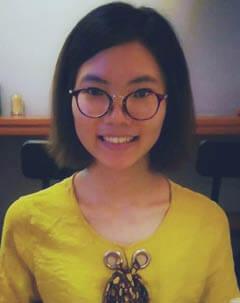
Credentials
Bachelor of Economics, Beijing Normal University; Master of Management, Peking University
Contact
Biography
Weiwei's career started as a research assistant at Peking University, focusing on labour economics and human resources management. She worked on research projects related to air pollution's effects on worker health and housing affordability for migrants. Additionally, Weiwei gained insight into the banking industry during a brief stint at a commercial bank.
Research interests
- human resources and labour relations
- labour economics
- migrant worker issues
- child development
Cohort
2020
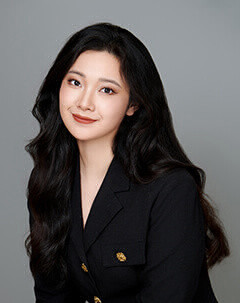
Credentials
Bachelor of Arts in Translation, Nankai University; Master of Science in Hospitality Management, Temple University; Master of Science in Nonprofit Management, Columbia University
Contact
Biography
Before joining Gustavson School of Business, Jialin sharpened her research skills through dual master's degrees in hospitality and nonprofit management. Her work spans strategic marketing, cross-sector collaborations, social sustainability, ESG performance and data analytics, as demonstrated by her published article and consulting projects. Jialin used to intern at the American Red Cross – Greater New York Region for one year in fundraising events and DEI initiatives.
Research interests
- sustainable tourism
- organizational sustainability
- ESG performance
- social and community enterprises
- business and community collaboration
- sustainable marketing
Cohort
2024
Alumni profiles
We sent a Q&A to alumni to hear about their experiences in the program. Here are a select few.
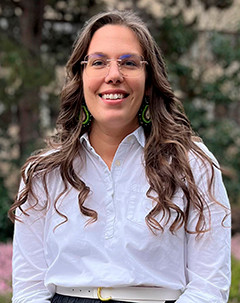
Current position:
Assistant Professor in Business & Society, Beedie School of Business, Simon Fraser University
Academic background:
Bachelor in Business Administration, Camosun College; MBA, Queens University
Graduation year:
2024
Why did you want to get your PhD?
During my MBA, I found it difficult to apply mainstream frameworks and theories in my daily work within an Indigenous community-based organization. During my business-school education, I saw no Indigenous representation within classroom content, the student body or the faculty, so I wanted to contribute to changing this through my PhD! Specifically, I wanted to include Indigenous perspectives and contexts within my teaching, support other Indigenous students and conduct research from an Indigenous perspective.
Describe your research focus
My research adopts an Indigenous management perspective to study strategic management and business ethics. Specifically, I study Indigenous community stakeholder value capture, Indigenous communities within the academy and Indigenizing the business school. My PhD dissertation explores how value is distributed and captured among a firm’s many stakeholders/rightsholders, with Indigenous communities being my primary focus.
Most prominent influences while doing the program
I think the PhD students from earlier cohorts, and my own cohort had a significant role in influencing my work. For example, more senior PhD students helped me set up effective (and realistic) time-management techniques, gave me a sense that success was possible and helped guide my own research journey. I was also fortunate to have a strong cohort of 3 other students. We have always been supportive, developmental and encouraging of each other, which has motivated me to grow and develop my own research skills.
Gustavson also has a lot of undercover academic celebrities who are also amazing human beings! Collectively, my professors, supervisor and mentors have encouraged me to reconsider the meaning of success within academia. Specifically, I saw academics that cared about the real-life implications of their work, worked tirelessly to support and engage their students, and recognized the value in self-care and work-life balance. It is these experiences that have significantly shaped how I view my work and career within the academy.
What was the most valuable thing you learned from doing your PhD?
I think I learned a lot about myself and the person I want to be. The PhD journey is a challenging journey with multiple detours. It was these challenges that made me re-evaluate what I considered as ‘academic success’, and the academic I aspired to be. It reinforced the importance of my connection to community and family – and that these relationships give meaning to my research. I also learned to be comfortable within my own research identity – it's easy to feel like you aren’t smart enough, or don’t belong in these institutions, so developing a balance between confidence and humility has allowed me to craft a space where I belong. Lastly, I’ve quickly learned that I enjoy academia so much more when I have great friends and colleagues to work with, so I’ve surrounded myself with wonderful people who challenge and support me!
Your advice to prospective students
It can be really difficult to hear the shortcomings of our work, so students must be able to separate the technical feedback they receive from their emotional responses to that feedback. When we become afraid of criticism, we tend to not share our ideas which then limits the pace we can improve and develop our work. A wonderful (and successful) colleague compared academics to entrepreneurs, in that we try to develop and market ideas. Therefore, we should try to test the market early with our new ideas and use that feedback/criticism as a way to improve our work.
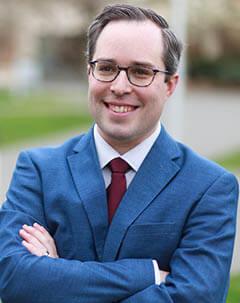
Current position:
Assistant Professor of Organization Theory, the Smeal College of Business, Penn State University
Academic background:
Bachelor of Arts, History, Utah State University, USA; Master of Arts, History, Miami University, USA
Graduation year:
2023
Why did you want to get your PhD?
I have always wanted to have a career that involves research. My original plan was to become a historian. But over time I fell in love with the phenomenon of organization—what brings people together to pursue bigger things that they believe are important. I wanted to find ways to explain how people come together to make things that last.
Describe your research focus
Most new firms last less than 6 years. Public corporations that used to last an average of 60 years now have an expected lifespan of less than 20 years. We need to cultivate theories that can help the rising generation of strategic managers to think institutionally about how to build things that last.
I believe that my research agenda can help with this. I study the strategic and entrepreneurial behaviours of enduring organizations. I use a long-term, historical approach to understand the relationship between entrepreneurial action and the institutional strength and resilience of these broader communities. I focus on empirical settings such as intergenerational entrepreneurial families, children’s hospitals, state-owned corporations, religious organizations and iconic corporations.
Most prominent influences while doing the program
The Gustavson School of Business invests very heavily in its PhD students. This means that you work closely with several faculty. For me, that was my supervisor Roy Suddaby.
What contributed most to your learning?
Doing a PhD is sort of like entering the world of professional sports. You have to compete for publication at a very, very high level. Journals receive hundreds of manuscripts each year and publish well below 10 per cent of these. For this reason, it is enormously helpful to work with experienced scholars who know what it takes to succeed in this process. Your time in the PhD program is your chance to develop an intellectual foundation that can help you to succeed over the long term. For me being involved in collaborative research experiences was enormously helpful.
Something unique or unexpected that you experienced in your journey here
I was surprised by the amount of developmental feedback and positive encouragement that I received from faculty here.
What was the most valuable thing you learned from doing your PhD?
Serious writing is an extended process. You climb to the top of the mountain to get your ideas on paper only to realize that there is a whole mountain range still waiting in front of you that you have to traverse to get where you want to be. What an audience sees in a published manuscript really is the tip of the iceberg in terms of the amount of revision and editing and deep cognitive work involved to get a manuscript to a high quality.
Your advice to prospective students
You can’t optimize your time for high quality research in isolation. You can waste years by not getting high quality feedback on what you’re working on. Research is a social process. Solicit feedback early and often. Shop ideas around. Truly listen to what other people say about them and be willing to adapt. Spend time truly observing what it is you’re studying in its natural habitat.
Sum up your experience at Gustavson in one word
Collegiality. To me collegiality is about having a sense of mutual respect or reciprocity toward the people you are working with. This has been an important characteristic of my experience at Gustavson. My research and teaching has been sustained by interaction with truly generous and kind people—who treat one another holistically as people first. Roles like student, educator, administrator, etc. come second.
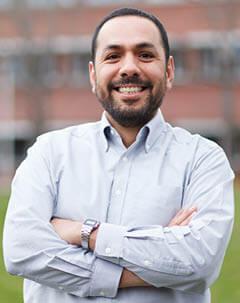
Current position:
Assistant Professor in Strategy and Organizations at the Smith School of Business at Queens University, Canada
Academic background:
Bachelor in Anthropology, Pontificia Universidad Católica del Perú, Peru; Master of Arts in Development Studies, Erasmus Rotterdam University, The Netherlands
Graduation year:
2023
Why did you want to get your PhD?
I have always been a curious person interested in studying and doing research. I wasn’t sure about pursuing an academic career at first—I have worked in the private and public sectors for many years. While I loved my job, I wanted to dedicate time to investigating the things I was observing and experiencing. I had the chance of doing that for my master’s and I loved the process (and the challenges). Since then, I was looking for the chance to go back to the books, gather and analyze data, and write about my findings. I finally got the opportunity to do it at Gustavson and I have been enjoying the journey ever since.
Why did you choose Gustavson?
People and culture. When I was looking for a program and institution, I had my mind set on a specific set of issues I wanted to do research about—I had a passion for sustainability and social issues in management. My search for a program started by looking at faculty members’ bios and publication records from different universities.
To me, it was important to find a person (or group of people) that understood and valued what I was trying to do. I had the great chance to meet Matt Murphy, whose research and teaching overlapped with my own areas of interest. I learned a lot about UVic and Gustavson through him. I learned that the school cared about sustainability and social issues, that the culture of the school was one of collaboration, and that its faculty was committed to conducting research that mattered. I felt there was a great fit and decided to apply.
Describe your research focus
My main interest is in how businesses create value and what kind of value they create (or destroy). We live in societies that are plural and diverse, in which value is defined differently by different people. Therefore, my interest is in understanding how the business landscape is changing to accommodate different perspectives (e.g., sustainability issues, social and environmental concerns, etc.), and how businesses are responding to this changing landscape.
What contributed most to your learning?
It has been a journey full of surprises. Being from Peru, I had limited knowledge about the North American academic world. I learned a lot from talking to people, sharing my work, coauthoring papers and attending conferences. In the end, this is a long and tough journey. If you want to enjoy it, you need to build community and do research about things you care about.
What was the most valuable thing you learned from doing your PhD?
Community. This can be a long and lonely journey. Care for others and ask for help when you need it.
Your advice to prospective students
Realize that this is a marathon: give yourself time to explore. Do research about things that you love: this give will you the energy you need to persist. Take care of your relationships: your success depends on people. Respect and listen to divergent ideas, theories, methods and interests: this is a great source of inspiration. Ensure that there is a good fit between you and the school: this is going to be your new home for the next 5+ years.
Sum up your experience at Gustavson
Journey of self-discovery. To me, the experience of doing my PhD at Gustavson has been one of developing my scholarly identity—who I am and who I want to become.
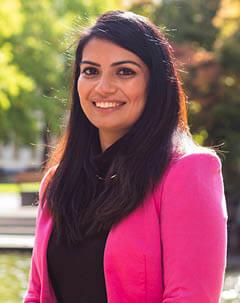
Current position:
Assistant Professor of Management, with a focus on international organizational behavior at Bentley College
Academic background:
Bachelor in Commerce, University of Delhi, India; Master in Management, IE Business School, Spain.
Graduation year:
2020
Why did you want to get your PhD?
I have always been interested in research and teaching and a PhD is the gateway to the world of academia.
Why did you choose Gustavson?
Two reasons: culture and research interests.
I knew I wanted to be a qualitative researcher and I could see quite a few qualitative researchers on Gustavson’s website.
Second, I emailed faculty at various institutions when I was considering my options. Gustavson was one of the few schools where almost everyone replied even if they were not interested in supervising a PhD student. They took the time to guide me to the person who could be a better fit. And almost everyone responded with some useful readings and suggestions related to my field of interest (although my research interests shifted during the course of my PhD).
Describe your research focus
My research primarily focuses on areas related to language diversity within the domain of international management. I am passionate about helping organizations recognize and comprehend the strengths of diversity, particularly in emerging economies and my research aims to improve the way individuals and organizations cope with diversity, specifically language and gender diversity. My PhD dissertation at Gustavson explored the relationship between within-headquarter linguistic diversity, social identity-based clusters and the implementation of on-the-job training programs.
Most prominent influences while doing the program
So many people! My supervisor, Wade Danis, played a key role in my development. He was excellent at providing feedback and encouraged me to maintain a work-life balance.
Liana Victorino was my teaching mentor and she has played a very important role in my development as a teacher. Her passion for teaching and empathy really changed how I view teaching and relationship with students.
So many others such as Stacey Fitzsimmons, Ravee Chittoor, A.R. Elangovan, Ricardo Flores and our PhD Program Manager Wendy Mah played a key role in my journey.
Something unique or unexpected that you experienced in your journey here
Learning to deal with criticisms from anonymous reviewers and rejections from journals. Peer review is a core element of publication process and learning to not get disheartened and using constructive criticism to better the research is a contributor to growth as a scholar.
What was the most valuable thing you learned from doing your PhD?
The importance of time management, discipline and patience. Writing a research project can take a long period of time, so focusing on the end goal and not giving up is essential. I also think the PhD process really helped me grow as a person. I am a diversity scholar and reading the existing academic literature and conversing with research participants and getting a glimpse of their experiences was surreal.
Your advice to prospective students
Don’t shy away from asking for help. A PhD is a difficult and long journey but everyone involved with the PhD Program is extremely helpful, so learn from their experiences!
And don’t forget to take a break and relax. Victoria is a beautiful city, please take out some time to explore the city and Vancouver Island.
Here is a list of our PhD alumni from the Gill Graduate School at the University of Victoria. Our program launched in 2010 with the first graduate in 2016.
- Dr. Sanaz Matinkoosha (2025)
- Dr. Emily Salmon, Beedie School of Business, Simon Fraser University (2024)
- Dr. Carlo Brighi, Ivey School of Business, Western University (2023)
- Dr. Juan Francisco Chavez Ramirez, Smith School of Business, Queens University (2023)
- Dr. Trevor Israelsen, Smeal College of Business, Penn State University (2023)
- Dr. Ye He, Warwick Business School, University of Warwick (2023)
- Dr. Komal Kalra, Bentley College (2020)
- Dr. Michael Silla (2020)
- Dr. Shazia Karmali (2020)
- Dr. Saeed Rahman, School of Business, University of the Fraser Valley (2019)
- Dr. Anirban Kar, School of Administrative Studies, Faculty of Liberal Arts and Professional Studies, York University (2018)
- Dr. Helena Zhu (2018)
- Dr. Mike Syzmanski, Gies College of Business, University of Illinois Urbana-Champaign (2017)
- Dr. Sarah Easter, College of Business Administration, Abilene Christian University (2016)
Selected publications
Here is a sample of the high quality research done in the past 5 years connected to our PhD program:
Slawinski, N., Brito, B., Brenton, J., & Smith, W. K. (2025). Reflections on deep academic–practitioner partnering for generative societal impact. Strategic Organization, 23(1), 134-146. https://doi.org/10.1177/14761270241274590
Hassan, S.E. & Prasad, A. (2024). Terra Economicus: Rhetorical Strategies of Legitimation in Land Grabbing. Academy of Management Perspectives. 39(1): 73-93. https://doi.org/10.5465/amp.2023.0085
Mitchell, J.R., Israelsen, T., Mitchell, R., Hua, W. (2024). Ordinary Language and Dialogue in Entrepreneurship. Academy of Management Review. 49(2):462-466. https://doi.org/10.5465/amr.2023.0032
Zhu, H., Smith, C. & Brown, G. (2024). Founder Dynamic Psychological Ownership: Impacts on Self and Others at Work. Applied Psychology: An International Review. https://doi.org/10.1111/apps.12505
Hrenyk, J., Salmon, E. (2024). The Unstated Ontology of the Business Case Study: Listening for Indigenous Voices in Business School Curricula. Academy of Management Learning and Education. 23(4): 529-553. https://doi.org/10.5465/amle.2023.0103
Rahman, S., Nguyen, M., Slawinski, N. (2024). Regenerating Place: Highlighting the Role of Ecological Knowledge. Organization & Environment. Special Issue "The Role of Place in Sustainability" 37(3): 466-494. https://doi.org/10.1177/10860266231220081
Kalra, K., Danis, W. (2024). Language and identity: The dynamics of linguistic clusting in multinational enterprises. Journal of World Business. 59(4), art. No 101541. https://doi.org/10.1016/j.jwb.2024.101541
Salmon, E. J., Chavez, J. F., & Murphy, M. (2023). New Perspectives and Critical Insights from Indigenous Peoples’ Research: A Systematic Review of Indigenous Management and Organization Literature. Academy of Management Annals. Vo 17 (2): 439-491. https://doi.org/10.5465/annals.2021.0132
Easter, S., Murphy, M. & Brannen, M.Y. (2023). Negotiating meaning systems in multi-stakeholder partnerships addressing grand challenges: Addressing homelessness in Western Canada. Journal of Business Ethics. 183:31-52 https://doi.org/10.1007/s10551-022-05064-7
He, Y. & Chittoor, R. (2023). When Does It (not) Pay to be Good? Interplay between Stakeholder and Competitive Strategies. Journal of Management. 49(7): 2490-2522. https://doi.org/10.1177/01492063221106433
Suddaby, R., Israelsen, T., Mitchell, JR, Lim, D. (2023). Entrepreneurial Visions as Rhetorical History: A Diegetic narrative Model of Stakeholder Enrollment. Academy of Management Review. 48(2): 220-243. https://doi.org/10.5465/amr.2020.0010
Suddaby, R., Israelsen, T., Bastien, F., Saylors, R., & Coraiola, D. (2023). Rhetorical History as Institutional Work. Journal of Management Studies. Vol 60(1): 242-278. https://doi.org/10.1111/joms.12860
Hua, W., Mitchell, R., Mitchell, B., Mitchell, JR, Israelsen, T. (2022). Momentum for Entrepreneurial internationalization: Friction at the interface between international and domestic institutions. Journal of Business Venturing. 37(6). 106260. https://doi.org/10.1016/j.jbusvent.2022.106260
Szymanski, M., & Kalra, K. (2021). Performance effects of interaction between multicultural managers and multicultural team members: Evidence from elite football competitions. Thunderbird International Business Review. Vol 63(2): 235-251. https://doi.org/10.1002/tie.22175
Easter, S., Ceulemans, K., Kelly, D. (2021). Bridging Research-Practice Tensions: Exploring Day-to-Day Engaged Scholarship Investigating Sustainable Development Challenges. European Management Review. Vol 18(2): 9-23. https://doi.org/10.1111/emre.12443


